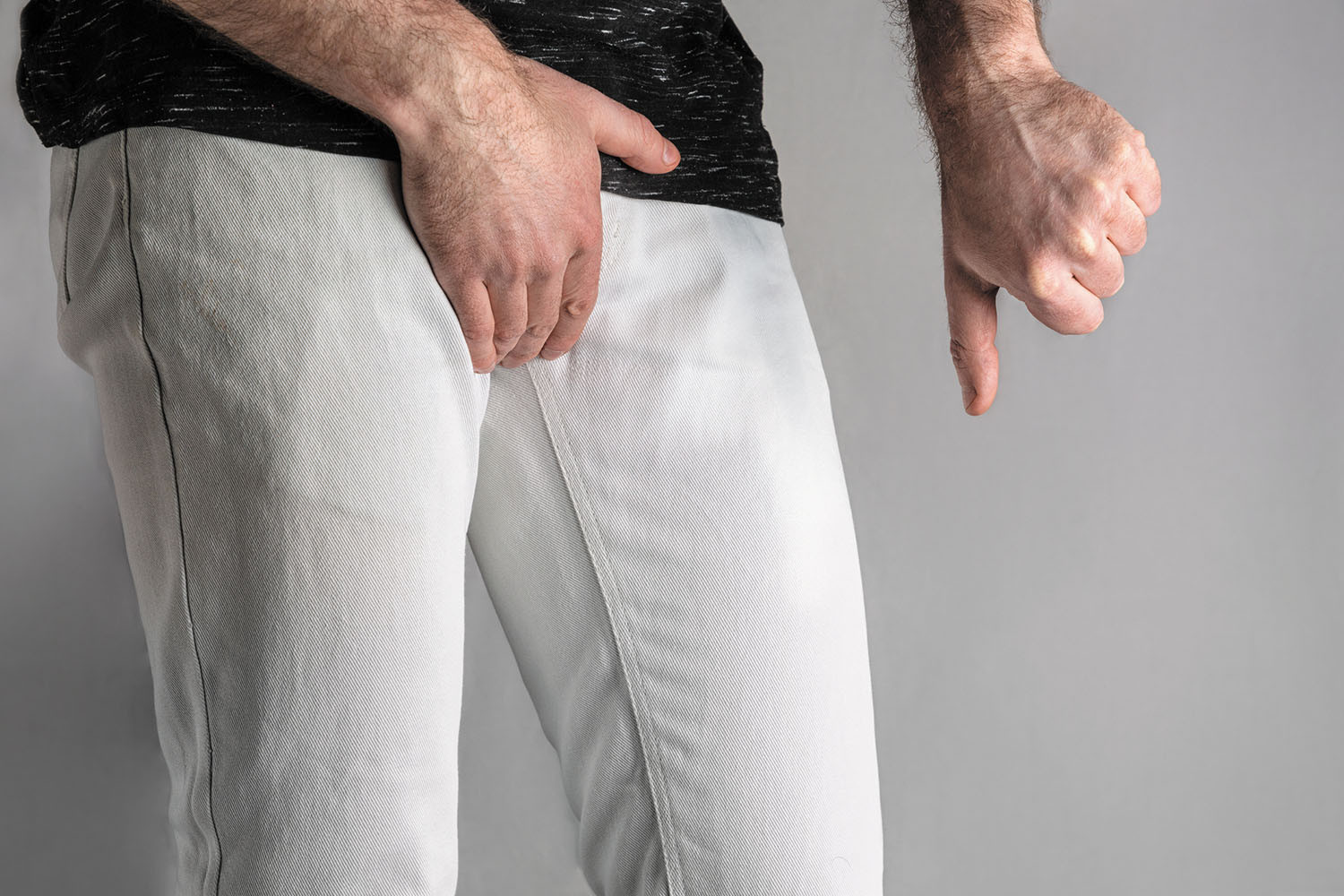
What are somatic workouts?

How to curb your stress eating

How to spot Parkinson’s disease symptoms

8 simple ways to reduce ultra-processed foods in your diet

Heart failure symptoms in women: How they’re different

GERD diet: Foods to avoid to reduce acid reflux

Strong is the new skinny

Everyday habits that sneakily weaken your bones

Don’t wait to get help for back pain

Correcting how you walk may ease osteoarthritis knee pain
Depression Archive
Articles
How meditation helps with depression
A regular practice can help your brain better manage stress and anxiety that can trigger depression.
Image: © skynesher/Getty Images
Depression continues to be a major health issue for older adults. It affects about 20% of adults ages 65 and older, and regular depression can lead to higher risks for heart disease and death from illnesses. It also affects people's daily lives by making them more socially isolated and affecting cognitive function, especially memory.
In fact, a study of 1,111 people (average age 71), published online May 9, 2018, by Neurology, found that those who had greater symptoms of depression also had worse episodic memory — the ability to recall specific experiences and events.
Is fibromyalgia real?
Ask the doctors
Q. My friend was recently diagnosed with fibromyalgia, but it seems like she might be imagining her symptoms. Is fibromyalgia a real condition?
A. The short answer to your question is yes. Fibromyalgia is a real condition that affects some four million Americans. It's a chronic pain syndrome that experts believe may be caused by a malfunctioning nervous system. Researchers using magnetic resonance imaging to examine the brains of people with fibromyalgia have found abnormalities in the part of the brain that processes pain signals from the body. It appears that this part of the brain is essentially boosting the intensity of normal pain signals, potentially causing the body to feel pain without a physical cause.
Exercise is an all-natural treatment to fight depression
Exercise is as effective as antidepressants in some cases.
One in 10 adults in the United States struggles with depression, and antidepressant medications are a common way to treat the condition. However, pills aren't the only solution. Research shows that exercise is also an effective treatment. "For some people it works as well as antidepressants, although exercise alone isn't enough for someone with severe depression," says Dr. Michael Craig Miller, assistant professor of psychiatry at Harvard Medical School.
The exercise effect
Exercising starts a biological cascade of events that results in many health benefits, such as protecting against heart disease and diabetes, improving sleep, and lowering blood pressure. High-intensity exercise releases the body's feel-good chemicals called endorphins, resulting in the "runner's high" that joggers report. But for most of us, the real value is in low-intensity exercise sustained over time. That kind of activity spurs the release of proteins called neurotrophic or growth factors, which cause nerve cells to grow and make new connections. The improvement in brain function makes you feel better. "In people who are depressed, neuroscientists have noticed that the hippocampus in the brain—the region that helps regulate mood—is smaller. Exercise supports nerve cell growth in the hippocampus, improving nerve cell connections, which helps relieve depression," explains Dr. Miller.
The no-drug approach to mild depression
Looking for a boost or alternative to antidepressant medicines? Here are four therapies that may help relieve your symptoms.
Image: © RgStudio/Getty Images
Many people suffer bouts of mild or moderate depression as they age. Health issues and the loss of a spouse, family member, or friend are common triggers that can lead to persistent sadness and loss of enjoyment.
While antidepressants like selective serotonin reuptake inhibitors (SSRIs) can be helpful to relieve and control symptoms, they are not always the right choice.
Understanding intimate partner violence
The pandemic may be making life harder for those in abusive relationships, but help is available.
A woman experiencing abuse at the hands of an intimate partner often feels isolated and alone. But the truth is, she has a lot of company. As many as one in three women in the United States has experienced intimate partner violence (IPV), which is violence involving a current or former spouse, partner, significant other, boyfriend or girlfriend, says Eve M. Valera, an associate professor in psychiatry at Harvard Medical School. This number includes women from all different ages and backgrounds.
Those who experience IPV may be left with lingering health effects, including mental health disorders such as anxiety, depression, or post-traumatic stress disorder. IPV is also linked to a number of physical symptoms and conditions, according to the federal Office on Women's Health, such as digestive problems, migraine headaches, arthritis, asthma, chronic pain, sexual problems, and heart problems. Another area of growing concern for many researchers is the potential for cognitive changes caused by traumatic brain injuries linked to abuse, says Valera.
Anticholinergic drugs linked with greater cognitive risk
In the journals
Many commonly used drugs have anticholinergic effects, meaning the drugs block the action of acetylcholine. Nerve cells release acetylcholine to transmit impulses to other nerves in the brain and throughout the body. Previous research has shown a link between these drugs and dementia. Now a study has found a similar link with mild cognitive impairment (MCI), especially if you take larger doses. The findings were published online Sept. 2, 2020, by Neurology.
Some medications are designed purposefully to block acetylcholine, such as those used for urinary incontinence. But more often the anticholinergic action is a side effect of drugs taken to treat conditions like allergies, colds, and depression.
Blood pressure medications may affect your mood
Contrary to conventional wisdom, some blood pressure drugs are linked to a lower risk of depression.
Like all medications, blood pressure drugs sometimes cause unwanted side effects. While many are mild and short-lived, some are more worrisome, including mood changes such as depression. But contrary to what doctors have long assumed, blood pressure drugs may not raise the risk of depression. In fact, some appear to be linked to a lower risk, according to a recent study (see "Depression rates in people taking different blood pressure drugs").
"The traditional view has been that blood pressure drugs that cross the blood-brain barrier are more likely to cause depression," says Dr. Randall -Zusman, a cardiologist at Harvard-affiliated Massachusetts General Hospital. Depression has also been associated with drugs known as beta blockers. But beta blockers (which work in part by slowing the heart rate) can also make you feel tired and listless, which may dampen your mood, Dr. Zusman explains.
COVID pandemic got you down?
The pandemic has made it especially hard for people with persistent depressive disorder.
Almost everyone goes through rough mental patches. You may feel down, sad, and lethargic. Most people bounce back with no problem, but if these feelings become more frequent and linger longer, you could have a mild, yet still serious form of depression called persistent depressive disorder (PDD), also known as dysthymia.
Older adults are especially vulnerable to PDD, and more so during the COVID-19 pandemic, says Dr. David Mischoulon, a psychiatrist at Harvard-affiliated Massachusetts General Hospital. "While the COVID pandemic affects everyone, older adults have experienced increased stressors like economic issues, prolonged isolation, and the threat of getting sick, all of which can trigger feelings of anxiety and depression beyond the norm."
Unlocking the mystery of chronic pelvic pain syndrome
The condition is an all-too-real problem for men, and one of the more difficult to treat.
After age 50, men often have periods of discomfort "down there." It could be a cramping, aching, or throbbing pain in and around your pelvis and genitals. You also may have issues in the bedroom and bathroom. While the problems are real, the cause is often difficult to pinpoint.
It's called chronic pelvic pain syndrome (CPPS) — also known as chronic prostatitis — and it's one of the most puzzling and difficult-to-manage conditions for older men.
When the arrival of menopause brings symptoms of depression
A new study suggests that hormone therapy might help with perimenopausal depression. But is it safe for you?
Hormone therapy has long been a controversial topic, and a new study about the role of hormones in depression is adding some fodder to the debate. A study published in the January 10 issue of JAMA Psychiatry determined that hormone therapy may help ward off symptoms of depression in women. Researchers found that perimenopausal and early postmenopausal women who were treated with hormones were less likely to experience symptoms of depression than women in the study who were given a placebo.
But while the findings of the study are important — particularly considering that a woman's risk of depression doubles or even quadruples during the menopausal transition — that doesn't mean hormone therapy should be widely used for preventing depression in women at this stage of life, says Dr. Hadine Joffe, the Paula A. Johnson Associate Professor of Psychiatry in Women's Health at Harvard Medical School, who wrote an editorial accompanying the study. "It's not a 'never,' but it shouldn't be a standard approach; in general, all of medicine has moved away from using hormones for prevention," she says.

What are somatic workouts?

How to curb your stress eating

How to spot Parkinson’s disease symptoms

8 simple ways to reduce ultra-processed foods in your diet

Heart failure symptoms in women: How they’re different

GERD diet: Foods to avoid to reduce acid reflux

Strong is the new skinny

Everyday habits that sneakily weaken your bones

Don’t wait to get help for back pain

Correcting how you walk may ease osteoarthritis knee pain
Free Healthbeat Signup
Get the latest in health news delivered to your inbox!
Sign Up











